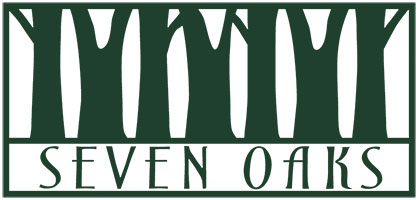Gleaming Office Tower Gets its Name: ‘Terminus’ to rise in Buckhead
Walter Woods – Staff
Tuesday, May 10, 2005
Cousins Properties is putting a name from Atlanta’s wild, frontier past on a new project that company executives believe will shape the city’s future.
The Cobb County developer announced Monday that it will call its office, retail and residential complex on the prime corner of Peachtree and Piedmont roads “Terminus,” the long-dead name of the bawdy railroad work camp that grew into the capital of the New South.
Cousins’ Terminus, where construction will be started over the next few weeks, will be anything but rowdy: The site plan includes a 31-story crystalline office tower — to be Cousins’ headquarters when it opens in 2007 — a roomy, covered public plaza, plus a 50,000-square-foot high-end shopping and restaurant center.
The company’s plans call for erecting a second, equally large office building, more than doubling the retail space and adding perhaps two residential towers (part of Cousins’ recent foray into condos).
With Terminus, a company long known for secluded office parks and lone skyscrapers is embracing a new kind of development — mixed-use projects placed at key junctures around the metro area, said Cousins CEO Tom Bell.
“The movement [toward building projects] outward in the metro region is not over, but it was the only option over the last several years — and the preferred option,” Bell said. “Now you’re seeing demographic changes that are causing an urbanization of [some] markets, including Buckhead.”
Terminus “is an indication of what the market is doing,” Bell said.
Metro Atlanta is seeing a boom in condominium demand, particularly near office and retail centers like Atlantic Station, Sandy Springs and the Cobb Galleria. More than 16,000 condominiums were sold in the metro area last year, up 30 percent from two years ago.
That demand for well-located residences, partly because of traffic congestion, is convincing many developers that consumers, and ultimately office tenants, want more urbanized, convenient developments, said Bob Voyles, president of Seven Oaks Co. and a longtime metro developer.
“The whole notion of mixed-use along transportation routes is where the future is,” Voyles said.
Cousins chose the name for its new project after a long process that narrowed from several ideas, said Bell, a former marketing executive.
Terminus was a place where people came to make new lives for themselves, and Cousins wants users at its new development to have the same opportunity, said Tad Leithead, Cousins senior vice president.
Terminus, an informal name for the local area until about 1842, looked more like the Wild West than Wildwood, Cousins’ serene Cobb County office park, said Don Rooney, a curator at the Atlanta History Center.
The tough settlement, which started as a labor camp at the end of a new railroad line from Chattanooga, was a frontier town with more saloons than churches, according to state history.
THE NAME ‘TERMINUS’ IS A FOOTNOTE IN THE CITY’S HISTORY
What’s now called Atlanta, or Hotlanta, or the City Too Busy to Hate, started out as a raucous labor camp with as many monikers as pine trees:
- White Hall — In the 1830s and 1840s, the end of a proposed rail line from Chattanooga, the Western & Atlantic, was loosely called White Hall, after a whitewashed tavern near what’s now West End Mall.
- Thrasherville — Western & Atlantic contractor John J. Thrasher started a workers camp and a store near today’s Marietta Street. His “Thrasherville” saw the first local religious service and an 1839 workers riot that killed two women.
- Terminus — By 1842, the end of the rail line was officially moved to a point near Underground Atlanta, and Thrasherville fell out of fashion.
- Marthasville — But Terminus didn’t last long, either. A year later, by 1843, the town was incorporated and named for the daughter of Georgia’s governor, Wilson Lumpkin.
- Atlanta — Alas, “Marthasville” sounded provincial, and legend has it the name proved too long to paint on a depot sign. Railroad executives by 1845 had come up with a catchy new brand name, which outlasted Sherman and kudzu.
— Walter Woods
